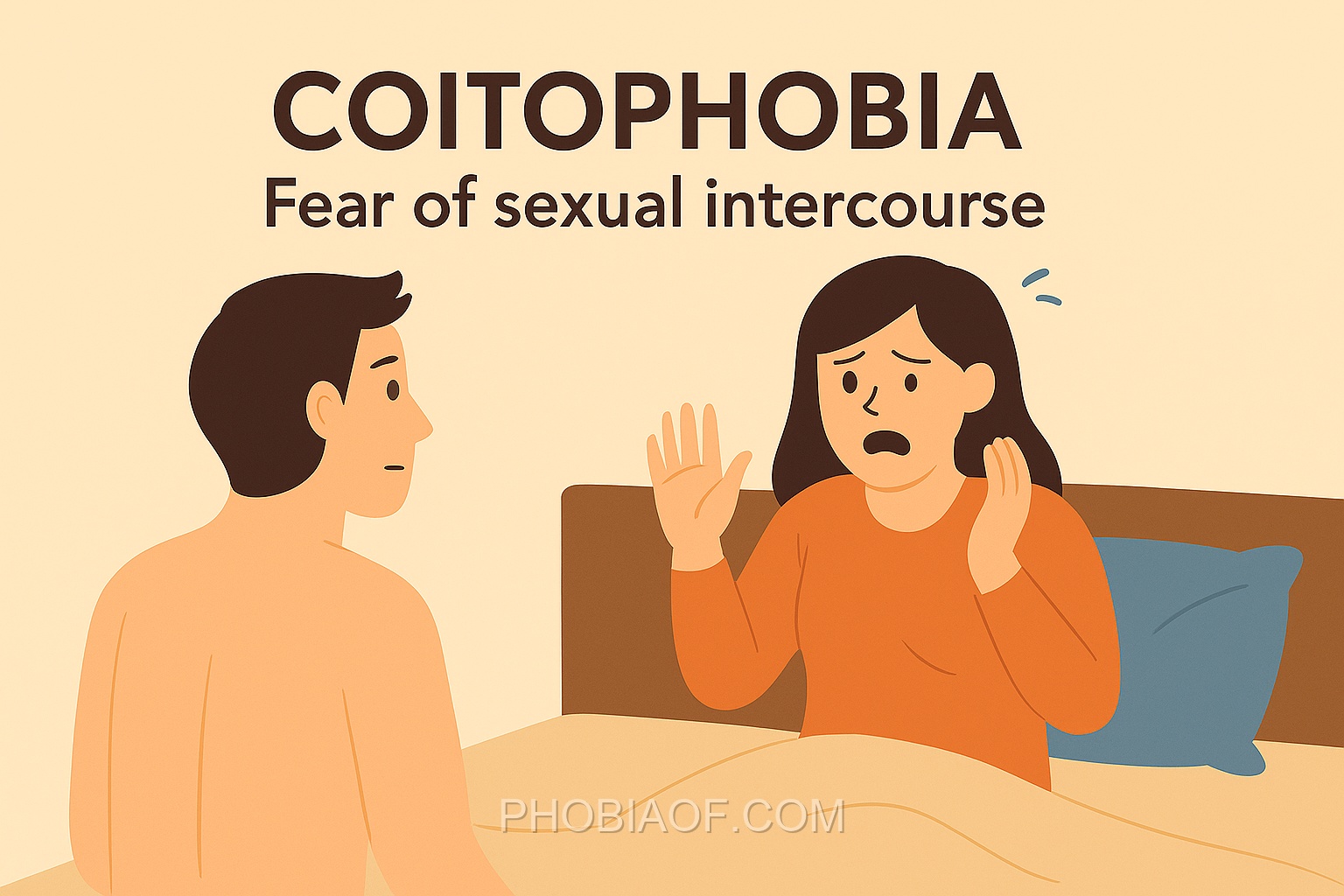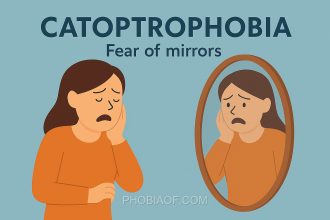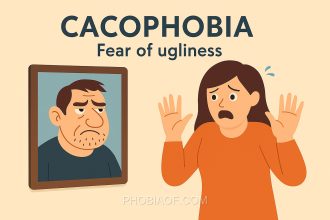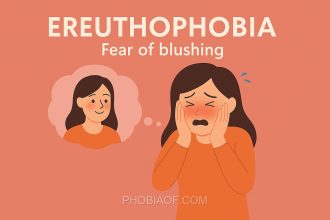Understanding Coitophobia
Have you ever felt an overwhelming fear at the thought of a seemingly intimate and natural experience like sexual intercourse? If so, you might be experiencing something known as Coitophobia.
In simple terms, Coitophobia is the fear of sexual intercourse. The term comes from the Greek word “coitus,” meaning sexual intercourse, and “phobia,” meaning fear. When these two are combined, they describe a specific anxiety that can significantly impact a person’s life.
This fear can manifest in various ways, affecting people both emotionally and physically. Here are some general effects of Coitophobia:
- Emotional Distress: Individuals may experience intense anxiety, depression, or a sense of shame related to their fear.
- Physical Symptoms: The fear can lead to physical reactions such as increased heart rate, sweating, or nausea when faced with the prospect of sexual activity.
- Relationship Challenges: Fear of intimacy can create barriers in romantic relationships, leading to misunderstandings or feelings of isolation.
Understanding Coitophobia with compassion is crucial for those who experience it and for those around them. Engaging with this fear in a supportive and non-judgmental manner can help individuals seek the help they need and lead more fulfilling lives.
Causes of Coitophobia
Coitophobia, or the fear of sexual intercourse, can arise from various factors that intertwine psychological, genetic, and environmental influences. Understanding these causes can provide insight into why someone might develop this phobia.
Genetic Predisposition
Some individuals might be genetically predisposed to anxiety disorders, including specific phobias like coitophobia. A family history of phobias or anxiety can increase the likelihood of developing similar fears.
Traumatic Experiences
One of the most common causes of coitophobia is a past traumatic experience related to sexual activity. This could include a history of sexual abuse, assault, or any other negative experience that instills fear or anxiety towards intimacy.
Learned Behavior
Observing and internalizing the fears and anxieties of family members or peers can lead to the development of coitophobia. If a person grows up in an environment where sex is viewed negatively or fearfully, they might adopt similar attitudes.
Psychological Factors
Other psychological issues, such as low self-esteem, body image issues, or general anxiety disorders, can also contribute to coitophobia. These factors may make individuals more susceptible to developing fears related to intimacy.
Environmental Factors
Cultural or religious beliefs that view sex as taboo or shameful can also play a significant role in the development of coitophobia. Such environments may instill fear or guilt about sexual activity.
Research and Theories
Research suggests that phobias, including coitophobia, may be linked to an overactive amygdala, the part of the brain involved in fear response. While more studies are needed, this theory highlights the complex interplay between brain function and phobic reactions.
Understanding these potential causes can be the first step towards addressing and treating coitophobia effectively.
Symptoms of Coitophobia
Coitophobia, or the fear of sexual intercourse, can cause intense fear or anxiety in individuals who experience it. This phobia may manifest in various physical, emotional, and behavioral symptoms. Recognizing these symptoms can help individuals understand what they or someone they know may be going through.
Physical Symptoms:
- Panic attacks, characterized by sudden feelings of overwhelming fear or discomfort.
- Excessive sweating, even in a non-physical situation.
- Rapid heartbeat or palpitations, often accompanied by shortness of breath.
- Shaking or trembling, which can occur in anticipation of or during a triggering situation.
- Nausea or an upset stomach, sometimes leading to vomiting.
- Dizziness or feeling lightheaded, which can occur during a panic attack or when exposed to the phobia trigger.
Emotional and Behavioral Symptoms:
- Avoidance of any situation or conversation related to sexual intimacy, often to the detriment of personal relationships.
- Overwhelming dread or fear when thinking about or approaching situations involving sexual activity.
- Feelings of shame or guilt related to one’s fear, which can exacerbate anxiety.
- Difficulty concentrating or focusing on anything other than the fear when exposed to the trigger.
- Emotional distress, including feelings of sadness or depression, due to the impact of the phobia on personal life.
The symptoms of coitophobia can significantly interfere with daily life, particularly in forming and maintaining intimate relationships, if the phobia is severe.
Treatment for Fear of Sexual Intercourse
Fear of sexual intercourse, also known as Coitophobia, can be an overwhelming and distressing experience. However, it’s important to know that this phobia can be treated and managed over time. With the right combination of therapies and coping strategies, individuals can overcome their fears and lead fulfilling lives.
Proven Therapies
Several therapeutic approaches have been shown to be effective in treating Coitophobia:
- Exposure Therapy: This therapy involves gradually facing the fear of sexual intercourse in a controlled and safe environment. By slowly increasing exposure, individuals can desensitize their anxiety response.
- Cognitive-Behavioral Therapy (CBT): CBT helps individuals identify and change the fearful thoughts and beliefs that contribute to their phobia. By restructuring these thoughts, individuals can reduce anxiety and build confidence.
- Counseling: Speaking with a mental health professional can provide a supportive space to explore underlying issues related to the fear. Counseling can also offer strategies for managing anxiety and improving communication with partners.
Coping Strategies
In addition to therapy, several self-help techniques can complement treatment:
- Relaxation Exercises: Practicing deep breathing, progressive muscle relaxation, or guided imagery can help reduce physical tension and stress associated with the phobia.
- Meditation: Regular meditation can improve overall mental health by promoting mindfulness and reducing anxiety levels.
- Support Groups: Joining a support group can provide a sense of community and understanding. Sharing experiences with others who face similar challenges can be empowering and encouraging.
Additional Considerations
In cases where the phobia is severe, medication such as anti-anxiety medications may be prescribed by a healthcare provider. However, therapy and coping skills should be the primary focus of treatment.
If Coitophobia is interfering with your daily life, it is crucial to seek professional help. A mental health professional can guide you through the treatment process and provide the support needed to overcome this phobia.
Remember, facing your fears is a journey, and with patience and persistence, progress is possible. You are not alone, and help is available.
Conclusion
Understanding the causes and symptoms of Coitophobia is a crucial step toward managing this often debilitating fear. By recognizing the underlying factors that contribute to this phobia, individuals can begin to address and work through their anxieties in a constructive way. Awareness and knowledge empower those affected to take control of their mental health and seek the appropriate support and treatment.
It’s important to remember that overcoming or managing Coitophobia is a journey that many people successfully undertake. With time, patience, and the right help, individuals can experience significant improvements in their quality of life. Professional guidance, such as therapy or medical consultation, can provide invaluable support and tools to navigate this process effectively.
We encourage anyone experiencing symptoms of Coitophobia to consider reaching out to a therapist or talking to a doctor. These professionals can offer tailored advice and interventions that cater to individual needs and circumstances. Always remember that you are not alone, and help is available to guide you towards a more comfortable and fulfilling future.
Take the first step today towards understanding and overcoming Coitophobia, and embrace the possibility of a life free from fear and anxiety.






